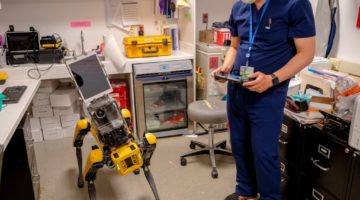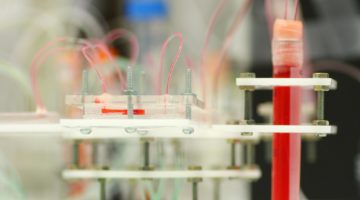
Across North America, Western Europe, Australia, and New Zealand, sperm counts have been plummeting. An analysis published last summer in the journal Human Reproduction Update shows a 59 percent decline in sperm count in these areas of the world during a 40-year period. Other studies cite decreasing sperm quality in additional countries, such as Japan.
Typically, men need to go to a clinic for fertility testing, and often do not go until they have difficulties conceiving a child, says Hadi Shafiee, PhD, an associate bioengineer at Brigham and Women’s Hospital (BWH). He was discussing the issue a few years ago with fertility experts at BWH and Massachusetts General Hospital (MGH), who proposed that a new at-home diagnostic test to analyze semen quality could help men become informed sooner.
“Men contribute to infertility in 40 to 60 percent of cases, but the pressure is mostly on women,” Shafiee says. “Because of social stigma or embarrassment, some men avoid the clinic. We wanted to come up with a more private, low-cost solution.”
Shafiee collaborated with the MGH Fertility Center to develop a smartphone-based microchip for at-home male infertility testing. Tests of the lab-based prototype show the smartphone semen analyzer identifies with 98 percent accuracy abnormal semen samples based on sperm concentration and motility.
After he got a provisional patent, Shafiee spoke with CEOs of manufacturing companies and attended conferences to gauge interest in the idea. He also approached BWH’s iHub, a resource center for innovators who want to develop and commercialize their solutions.
“iHub provided pilot funding and assembled a team of people to consult on the project,” Shafiee says. “We interviewed experts in fertility, industry, and academia, and got invaluable feedback.”
Shafiee also has been working to adapt the cell phone-based platform for other uses. Possibilities with this technology include detection of viruses such as HIV and Zika, at-home white blood cell count monitoring for cancer patients, and further research studies of semen quality that examine the impact of air pollution, temperature, and altitude in different countries.









